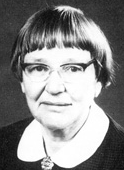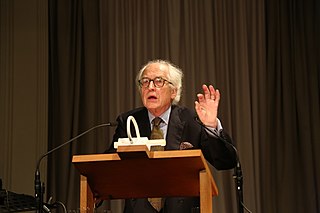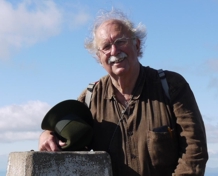
John Stuart, 3rd Earl of Bute, styled Lord Mount Stuart between 1713 and 1723, was a British nobleman who served as the Prime Minister of Great Britain from 1762 to 1763 under King George III. He became the first Tory to hold the position and was arguably the last important royal favourite in British politics. He was the first prime minister from Scotland following the Acts of Union in 1707. He was also elected as the first president of the Society of Antiquaries of Scotland when it was founded in 1780.

The term neo-romanticism is used to cover a variety of movements in philosophy, literature, music, painting, and architecture, as well as social movements, that exist after and incorporate elements from the era of Romanticism.

The English landscape garden, also called English landscape park or simply the English garden, is a style of "landscape" garden which emerged in England in the early 18th century, and spread across Europe, replacing the more formal, symmetrical French formal garden which had emerged in the 17th century as the principal gardening style of Europe. The English garden presented an idealized view of nature. Created and pioneered by William Kent and others, the "informal" garden style originated as a revolt against the architectural garden and drew inspiration from landscape paintings by Salvator Rosa, Claude Lorrain, and Nicolas Poussin, as well as from the classic Chinese gardens of the East, which had recently been described by European travellers and were realized in the Anglo-Chinese garden.
David Daiches was a Scottish literary historian and literary critic, scholar and writer. He wrote extensively on English literature, Scottish literature and Scottish culture.

Rachel Bromwich born Rachel Sheldon Amos, was a British scholar. Her focus was on medieval Welsh literature, and she taught Celtic Languages and Literature in the Department of Anglo-Saxon, Norse and Celtic at the University of Cambridge, from 1945 to 1976. Among her most important contributions to the study of Welsh literature is Trioedd Ynys Prydein, her edition of the Welsh Triads.

The 1794 Treason Trials, arranged by the administration of William Pitt, were intended to cripple the British radical movement of the 1790s. Over thirty radicals were arrested; three were tried for high treason: Thomas Hardy, John Horne Tooke and John Thelwall. In a repudiation of the government's policies, they were acquitted by three separate juries in November 1794 to public rejoicing. The treason trials were an extension of the sedition trials of 1792 and 1793 against parliamentary reformers in both England and Scotland.

John Dixon Hunt is an English landscape historian whose academic career began with teaching English literature. He became a professor at the University of Pennsylvania in 1994 and served as the department chair of landscape architecture and regional planning until June 2000, now being emeritus. One aspect of his work focuses on the time between the turn of the seventeenth through the end of the 18th centuries in France and England. He is the author of many articles, not only in landscape journals but also Apollo, Lincoln Center Theater Review, and Comparative Criticism, and chapters on topics including T. S. Eliot and modern painting, Utopia in and as garden, and garden as commemoration.
This article is about the particular significance of the year 1813 to Wales and its people.
Daniel Albert Baugh was an American historian. He has been labelled "as the definitive historian of [British] naval administration." Baugh defined his own contribution in explaining "My research field is mainly England, 1660–1840. By studying administration chiefly in terms of administrative problems, I hope to improve our understanding of both the nature of society and the development of government.". After 1982, he focused his attention on maritime, naval and geopolitical history. He died on 9 February 2024.
Ian Ralph Christie, was a British historian specialising in late 18th-century Britain. He spent most of his academic career at University College London (UCL), from 1948 to 1984.
John Garnett (1707/08–1782) was an English bishop of Clogher in the Church of Ireland.

Romanticism in Scotland was an artistic, literary and intellectual movement that developed between the late eighteenth and the early nineteenth centuries. It was part of the wider European Romantic movement, which was partly a reaction against the Age of Enlightenment, emphasising individual, national and emotional responses, moving beyond Renaissance and Classicist models, particularly into nostalgia for the Middle Ages. The concept of a separate national Scottish Romanticism was first articulated by the critics Ian Duncan and Murray Pittock in the Scottish Romanticism in World Literatures Conference held at UC Berkeley in 2006 and in the latter's Scottish and Irish Romanticism (2008), which argued for a national Romanticism based on the concepts of a distinct national public sphere and differentiated inflection of literary genres; the use of Scots language; the creation of a heroic national history through an Ossianic or Scottian 'taxonomy of glory' and the performance of a distinct national self in diaspora.
Felix Vaughan was an English barrister, known for his role as defence counsel in the treason trials of the 1790s.

Christiana Joan Elizabeth Ruth Payne is a British art historian at Oxford Brookes University who is a specialist in genre painting and the depiction of the natural environment in British art of the eighteenth and nineteenth centuries.

William Hamilton Reid was a British poet and hack writer. A supporter of radical politics turned loyalist, he is known for his 1800 pamphlet exposé The Rise and Dissolution of the Infidel Societies in this Metropolis. His later views turned again towards radicalism.
Grongar Hill is located in the Welsh county of Carmarthenshire and was the subject of a loco-descriptive poem by John Dyer. Published in two versions in 1726, during the Augustan period, its celebration of the individual experience of the landscape makes it a precursor of Romanticism. As a prospect poem, it has been the subject of continuing debate over how far it meets artistic canons.

Edward Pugh (1763–1813) was a Welsh artist known for his landscape paintings of north Wales. He was the subject of a book-length biography by John Barrell in 2013.

Thomas Gainsborough was the first British artist to employ cottages as a major subject, in what has become known as his "Cottage Door" paintings, painted during the final decades of his life; and was in the vanguard of a late 18th century fad of interest in them.












